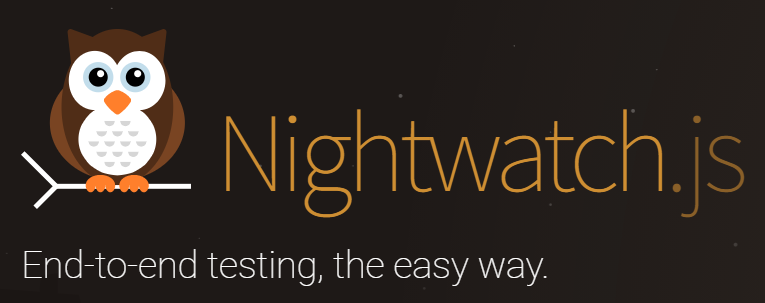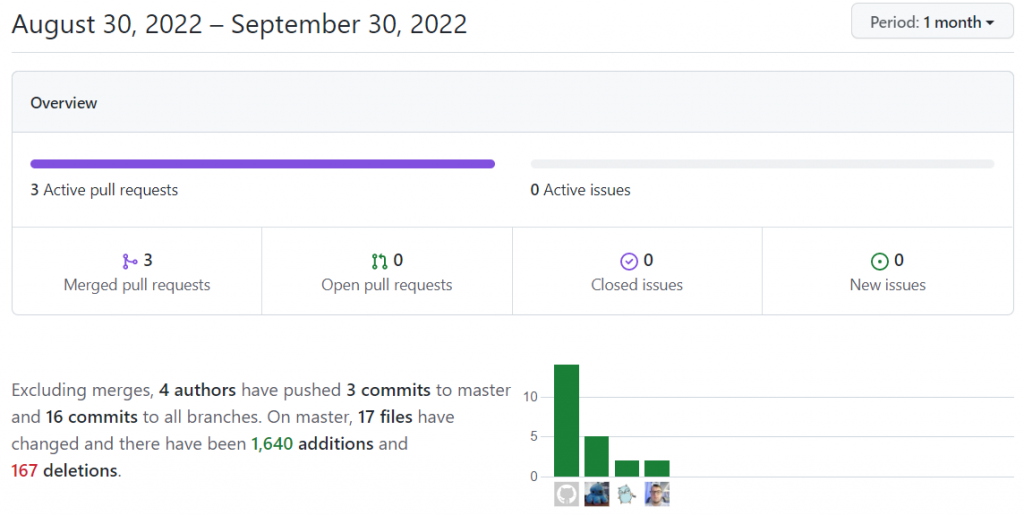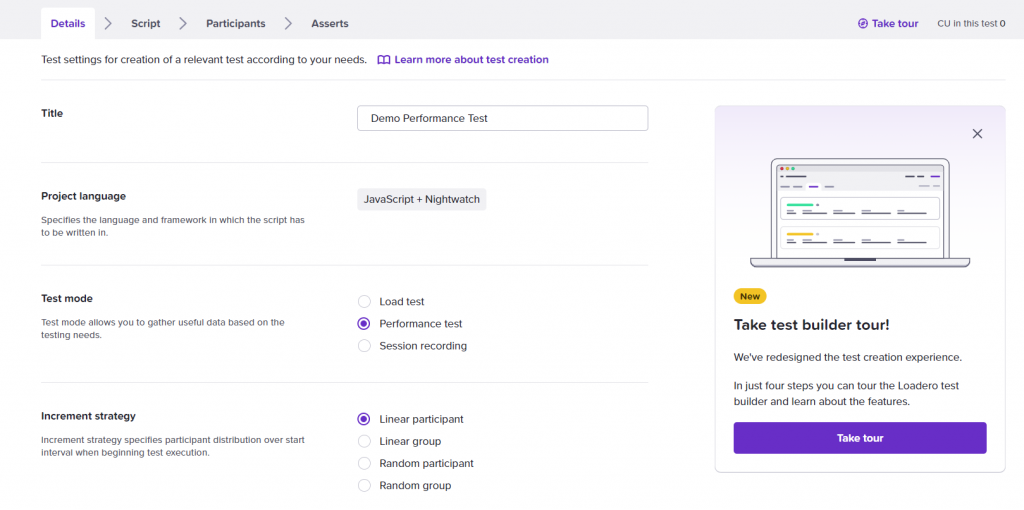We’ve been working on many new features and improvements for Loadero, both large and small. And now we are excited to share the updates and some information about even bigger updates coming soon. Here is what changed in Loadero recently:
We upgraded NightWatch to version 2.3.0

In Loadero we use the NightWatch framework for tests written in Javascript, and we really like it. We actually mostly use it when we are creating tests for our customers. Recently we updated the version we use to 2.3.0. Make sure to learn what’s different in the currently used version and use it to your tests’ benefit. There also is a video walkthrough for the release you might find helpful.
Loadero-Python client library v1.0.0 has been released

We already have the Java library that allows Loadero users to create and edit tests programmatically. It helps some of our customers use the tool more conveniently, but with the popularity of Python for test automation growing, we are doing something similar in Python. After quite a long time of intensive work on this, we released Loadero-Python v1.0.0 which you can access here. In the same way as the Java library, the Python library provides a convenient, programmatic way to interact with the Loadero API. It allows you to read, copy, create, update, delete and launch tests. The same operations, except for launch, are available for things like asserts, preconditions (if your subscription plan allows them), test groups, and participants. Moreover, you can retrieve all the relevant information regarding the tests that you may need i.e. test results or test runs.
New browser versions

In Loadero we keep the latest five versions of Google Chrome and Mozilla Firefox and also we add the newest released version as soon as possible. Currently, Loadero allows Mozilla Firefox 105, Google Chrome 106, and the previous 4 versions to be set as your test participant browser.
Change to an API endpoint
A change is to be made for the default order of the “read all runs” API endpoint. Descending order, so the latest runs are on top, will be changed to ascending order by ID. If you are using this endpoint of our API, make sure to address the change accordingly. The documentation of Loadero API is available in form of a Swagger 2.0 doc here.
New blog post

Quite often we get requests to provide support to migrate tests from other testing tools to our service. We try to provide support to our users to help make this transition as easy and flawless as possible. To ease the process further for other users with similar needs we created a blog post on migrating WebRTC tests to Loadero from testRTC, requests for running such tests on Loadero are the most frequent. If you are already in the progress of migration or just planning and estimating how big of a task this is, learn from our experience, this could be valuable to better understand how Loadero functions and how you can get maximum value from running your tests with us.
Other fixes and improvements
We also made some performance improvements for test start time, node start time is shorter now, so you might notice that your tests start faster and spend less time with the Pending status.
There was an issue with navigator.deviceMemory, which was not correctly initialized. It is fixed now and now works properly.
Coming soon to Loadero

We’ve been working on a new test builder UI for a long time and finally, this work is coming to a conclusion. We plan to release the new UI and offer it as an option to our users in the coming month. Follow our updates to learn about it among the first.
Besides that we are also working to make sure all Loadero data is being hosted in the EU, this work already is in progress for some time and once it is finished we’ll inform our users about that.
These are all the recent updates to Loadero, we hope that the changes will allow you to make your tests fit your needs better and be more insightful. If you lack a feature in Loadero, make sure to let us know. Your opinion is important to us.





